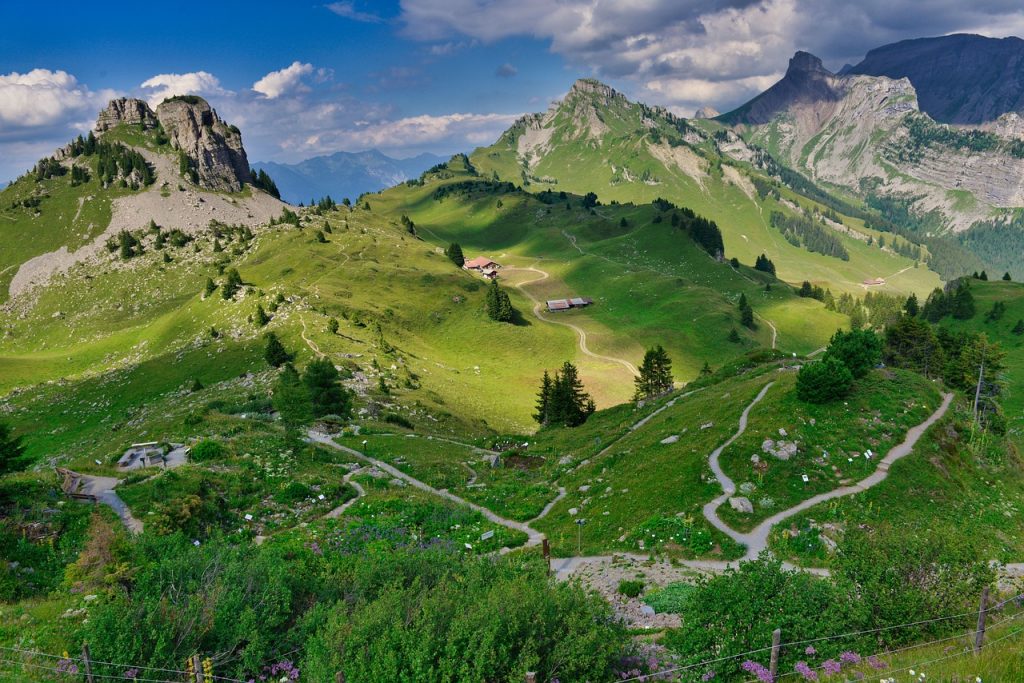Sustainable Sightseeing: A Guide to Green Tourism

Are you tired of the same old humdrum vacations, leaving trails of waste and guilty footprints? It’s time to step into a world of travel that’s as green as a lush rainforest and as delightful as a meandering river.
Welcome to the realm of green tourism, where every step you take is a leap towards preserving our planet and uplifting local communities. Get ready to embark on an eco-adventure that’s not only responsible but also outrageously enjoyable!
Unveiling the Green Marvels of Travel
Green tourism, also known as eco-tourism, is a voyage that doesn’t just open your eyes to natural wonders; it does so while keeping Mother Earth’s best interests at heart. Think of it as an eco-conscious dance with nature, where your every move treads lightly, leaving nothing but awe and appreciation behind. Forget the conventional tourist trail – green tourism offers a delightful smorgasbord of activities that celebrate the environment and champion sustainability.
A Symphony of Green Tourism Activities
Step into a world of enchanting possibilities with green tourism activities that elevate your senses and tickle your curiosity. Imagine yourself bird watching, as you’re serenaded by a chorus of feathered performers harmonizing in the trees. Or take a leisurely nature walk, where each footstep unveils hidden treasures, from delicate wildflowers to the scents of the forest. And for the daring souls, hiking through pristine landscapes brings you closer to untouched beauty, revealing the secrets of nature’s grand design.
But the adventures don’t end there. Picture yourself snorkeling in coral reefs teeming with vibrant marine life, in destinations like the Great Barrier Reef in Australia or Raja Ampat in Indonesia. Not only do these underwater escapades offer unforgettable encounters with marine creatures, but they also support reef conservation efforts, ensuring these underwater wonderlands thrive for generations to come.
For a truly immersive green experience, consider volunteering vacations, where you can actively participate in conservation projects. Places like Costa Rica’s Osa Peninsula or the Galapagos Islands in Ecuador welcome eco-volunteers to protect endangered species, restore natural habitats, and support sustainable farming practices. These hands-on adventures not only contribute directly to environmental conservation but also provide travelers with a profound sense of purpose and fulfillment.
The Heroes of Green Tourism: Eco-Champions and Trailblazers
As green tourism gains momentum, a stellar cast of eco-champions emerges, leading the way towards a more sustainable travel future. Among these trailblazers are companies that epitomize responsible travel and conservation. Meet Tui Group, a tour operator that offsets carbon emissions and spearheads initiatives to protect biodiversity. G Adventures sets a shining example with their commitment to community-based tourism, supporting local economies and preserving cultural heritage. And Intrepid Travel takes travelers on meaningful adventures while minimizing environmental impact, proving that wanderlust can go hand in hand with eco-awareness.
These companies are not just shining stars; they’re game-changers. By promoting eco-friendly practices and offering sustainable travel options, they inspire the entire industry to follow suit, setting off a wave of positive change in the travel world.
Greener Pastures: Why Green Tourism Rocks
Let’s be honest – green tourism isn’t just a tree-hugging fad; it’s a revolutionary way to transform our planet and our experiences. By choosing eco-friendly travel, you’re not only reducing waste and conserving resources; you’re creating a ripple effect that reverberates through the very heart of the places you visit.
Did you know that the global tourism industry is responsible for approximately 8% of carbon emissions? Green tourism acts as a much-needed counterforce, reducing this environmental impact through low-impact practices. Many eco-tourism companies opt for renewable energy sources, utilize hybrid or electric vehicles, and promote energy-efficient accommodations. By doing so, they help mitigate climate change and protect natural landscapes from degradation.
The benefits don’t stop there. Green tourism also plays a significant role in water conservation. Travelers are encouraged to use refillable water bottles and participate in initiatives to reduce single-use plastic consumption. In regions facing water scarcity, such as the Middle East and parts of Africa, eco-tourism companies work with local communities to implement sustainable water management practices, ensuring that precious water resources are conserved for future generations.
Communities Rejoice: Green Tourism’s Local Impact
But wait, there’s more! Green tourism isn’t just about saving the environment; it’s about empowering local communities too. As you journey through lands unknown, you’ll discover that responsible travel brings prosperity to those who cherish their natural heritage the most.
Eco-tourism companies partner with local guides, ensuring that every step of your exploration supports local livelihoods. Sustainable tours provide economic opportunities, while responsible wildlife viewing becomes a lifeline for conservation efforts. For example, in East Africa, responsible safari operators collaborate with local Maasai communities to establish conservancies, where wildlife can thrive in harmony with local traditions and livelihoods.
In addition to economic empowerment, green tourism fosters cultural appreciation and preservation. By engaging with local communities and supporting cultural heritage initiatives, travelers gain a deeper understanding of the places they visit, enriching their own travel experiences and leaving a positive impact on the communities they encounter.
The Grand Finale: A Greener Tomorrow
As you wrap up your unforgettable journey through green tourism, remember that every decision you make has a ripple effect. Whether you’re a seasoned wildlife watcher, a nature aficionado, or simply someone seeking a more environmentally





